What Bangladesh needs to do to shift gears

In 2024, Bangladesh's economy has a firm footing. But what about the future? Will we continue to rely on the ready-made garments (RMG) industry for employment and export earnings, and depend on expatriate remittances to fuel a lopsided economy? This question came to my mind as I watched millions of RMG workers return to their factories, ploughing through traffic jams, clogged roads, and dilapidated infrastructure, with concern in their minds about their future job prospects.
And what about those with a graduate degree, who need help finding employment in their preferred profession? Or those who have bagged a low-paying job in a temporary gig—like my own nephew, who has an MBA and is an accountant, but is struggling pay his bills with a minimum wage job in a travel agency?
Bangladesh needs to embrace digital technology to modernise its economy and expand opportunities for people from all walks of life. We are already approaching the quarter-century mark of the 21st century, but the economy is stuck in a rut. It reminds me of the sculpture "The Struggle," based on painter Zainul Abedin's "Sangram," where two bullocks with the driver try to pull a cart laden with logs out of the mud while the wheels are stuck.
On April 2, The New York Times ran a long story which lauded Bangladesh's growth model of the last half a century. It gave leaders credit for lifting up millions of poor people and praised the success of turning farmers into textile workers. But the article also cautioned that changes in trade, supply chains, and technology are making our journey into the next quarter of the century perilous. I am sure this precaution applies to other nations, too. On April 1, in an opinion piece for The Wall Street Journal, Robert B Zoellick, former president of the World Bank, lashed out at Biden and Trump, the two presumptive candidates for the US presidency. He attacked them for their inability to see the writing on the walls, and rather than preparing the US for the challenges of the 21st century, taking it back to the 20th.
Earlier this year, the World Economic Forum (WEF) released its Future of Growth framework, which advised that with "the pressing need to rekindle global economic growth, we must move to innovative, inclusive, sustainable and resilient growth."
So, what is the takeaway for Bangladesh from these warnings coming from different corners?
Manufacturing, which should still form the base of our economy in the coming decades, must be more productive and will, in any case, require fewer workers to make garments, leather goods, and IT products. We will depend on innovation in artificial intelligence, quantum computing and general-purpose technologies.
To compete in the world, we can no longer rely on the two bread-and-butter sectors of our economy—the RMG sector for jobs and foreign exchange, and the external jobs market for further employment and remittances. Remarkably, we have a very educated young labour pool ready to tackle the challenges, but we need to remove the hurdles they face: nepotism, crony capitalism, and the stagnant services sector, which is only worsened by short-term profit motives.
The question, now, is this: what will spur the economy to reach the trillion-dollar target and the middle-income status? The answer lies within ourselves.
In an article on her Substack titled "Visiting the Future," Susan Crawford, a law professor at Harvard University, wrote in an admiring tone about the climate adaptation of Bangladesh after visiting the country. "They, too, are living in a future that hasn't quite reached everyone in the US yet. Extreme heat, salty water, destructive sea level rise and storms are all facts of life in Bangladesh," she wrote. "The country, in one of the most densely populated and lowest-elevation regions on the planet, was among the first to recognise the need to adapt to the climate changes that are already baked into our world." In her opinion, the country is ahead of the US on the climate curve, and she concluded very optimistically that "being there felt like visiting the future."
How can this country and its leaders, then, miss the cue on the world's economic future? We must marshal our resources and exploit the broad global economic trend. But we also need to support the economy's evolution from agriculture to manufacturing, and now to services, to reflect changes in our growing domestic demand. Our exports need to take advantage of economies of scale with a diverse array of manufacturing and services.
My friend, Prof Rahul Roy of Boston University's School of Medicine, just returned from a trip to Kolkata. I was curious to know how West Bengal was doing amidst the "chaos" in India. He simply said, "Fine." But he then added that West Bengal, like the rest of India, is moving towards rapid industrialisation. "Bangladesh needs to change direction to diversify and broaden its domestic market," he said. "As you know, the IT sector in India contributes only 15 percent to the GDP [actually, it is only 13 percent]. So, while you guys [Bangladesh] are going gung ho about AI and all that, the industrial sector needs to move away from its over-reliance on garments."
Prof Rashed Al Mahmud Titumir of Dhaka University agrees. In a recent article in The Daily Star, he outlines that the necessary conditions for our transition from the present stagnation are industrialisation, diversification, competitiveness, and technological catch-up through structural transformation to enhance the capabilities of our amazingly resilient labour force. Someday, a new cadre of leadership will tap into this opportunity with the spirit of embracing science, technology, innovation, and opportunity.
As I was finishing up this article, I came across a message from Prof Rehman Sobhan: "We are taking development forward, but there are gaps and continuing weaknesses of our institutions. This is a very central element," he said at the launching event in Dhaka of the book Fifty Years of Bangladesh: Economy, Politics, Society and Culture, that he co-authored. I am glad that he and I see eye to eye on some matters.
Dr Abdullah Shibli is an economist and works for Change Healthcare, Inc, an information technology company. He also serves as senior research fellow at the US-based International Sustainable Development Institute (ISDI).
Views expressed in this article are the author's own.
Follow The Daily Star Opinion on Facebook for the latest opinions, commentaries and analyses by experts and professionals. To contribute your article or letter to The Daily Star Opinion, see our guidelines for submission.

 For all latest news, follow The Daily Star's Google News channel.
For all latest news, follow The Daily Star's Google News channel. 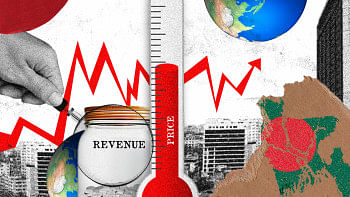
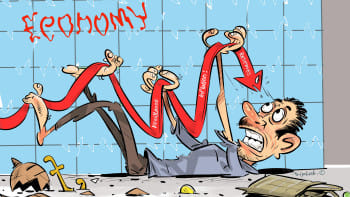
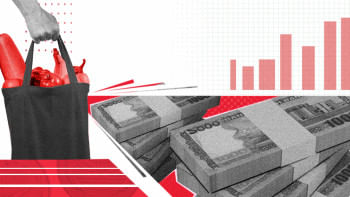
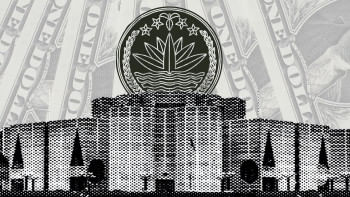
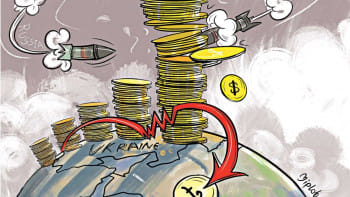



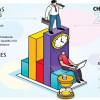
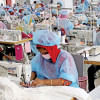
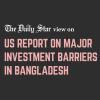


Comments